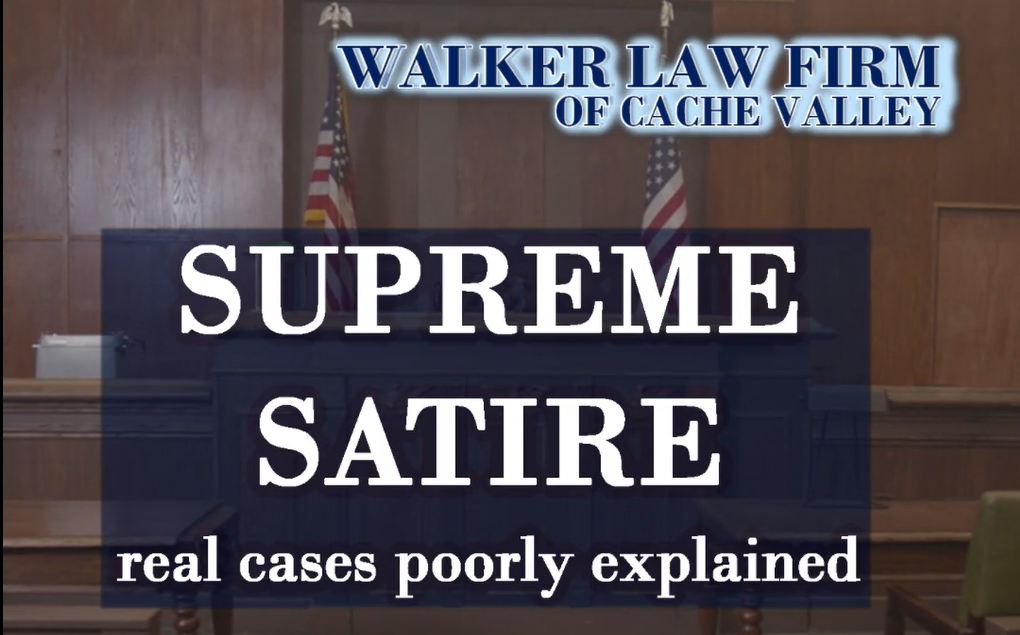Supreme Satire – Serving God
Picture this: St. Peter, clipboard in hand, is doing his usual intake paperwork when a man—nobody knows how he got past security—shuffles up with a thick stack of papers. Not the Book of Life. Not a hymnal. A lawsuit.
“Uh… Mr. Peter,” the man says, licking his thumb to flip to page three. “I’m here to serve the Almighty. Plaintiff versus God. Standard tort matter. Strict liability.”
The angels stop polishing their harps. A cherub gasps. Someone in the line faints and drops their halo.
Peter, unflappable as always, raises an eyebrow. He has seen smuggling attempts, bribes in the form of Costco sheet cakes, even a guy trying to bring a live ferret into Heaven. But never a summons for the Creator Himself.
The paperwork problem is immediate: Heaven doesn’t have a process server department. The man insists divine jurisdiction is universal and cannot be dodged. Peter sighs, mutters something about “sovereign immunity,” and goes looking for a lawyer.
That, it turns out, is trickier than expected. Not many lawyers make it up here. He checks the archives: Cicero? Maybe, but he’s too busy lecturing the archangels on rhetoric. Clarence Darrow? Reportedly deep in philosophical debates with Socrates, unreachable by harp-mail. Then a winged intern whispers: “Gerry Spence just arrived.”
Peter smiles. Finally—someone with buckskin jackets and a courtroom drawl who might just know how to handle a lawsuit against God.
When Humans Sue the Divine
This scenario, as surreal as it sounds, isn’t far off from what has actually happened in Earth’s courtrooms. Yes, people really have tried to sue God. Not metaphorically. Literally. In binding civil litigation.
The most famous modern attempt came in 2008, when Ernie Chambers, a Nebraska state senator, filed a lawsuit against God. Chambers, who spent decades as a sharp-tongued critic of religious privilege in politics, alleged that God had caused “fearsome floods, egregious earthquakes, horrendous hurricanes, terrifying tornadoes, pestilential plagues…”—in short, a very long list of natural disasters. He sought an injunction ordering the Almighty to cease these acts of terror.
The case, Chambers v. God, made headlines worldwide. The judge dismissed it, of course, citing that God could not be properly served with notice of the lawsuit. Chambers countered, tongue firmly in cheek, that God was all-knowing, and therefore had already received notice. Clever, but alas, not persuasive.
Betty Penrose and the 1969 Lightning Strike
Chambers wasn’t the first. Back in 1969, one Betty Penrose attempted to sue God after lightning struck her house. Her legal theory was simple: God is responsible for all acts of nature, the lightning came from nature, therefore God caused the damage.
Unfortunately for Ms. Penrose, the court dismissed the case. Sovereign immunity aside, judges tend to grow nervous about compelling God to appear for deposition. Imagine the subpoena logistics. Where do you send it? Mount Sinai? A burning bush? Registered mail to “Heaven, Eternity, ZIP: 00000”?
The Serious Under the Absurd
As ridiculous as these cases sound, they usually make a point. Chambers himself admitted he never expected to win. His goal was to highlight the frivolous lawsuits that clog court dockets, as well as the way religion weaves into politics and law. Filing against God was his satire in legal form—a reminder that courts are not always equipped to handle the impossible, even when phrased in legalese.
There’s also a deeper lesson about what the law can and cannot do. Courts can issue judgments against corporations, governments, and individuals because they exist in the tangible realm. God, on the other hand, remains—legally speaking—outside jurisdiction. Even if you manage to file the paperwork at the Pearly Gates, you won’t find a bailiff brave enough to enforce the judgment.
Imagine the Trial
Still, picture it: the courtroom packed with angels, stenographers frantically trying to keep up with an omnipotent witness who speaks in thunderclaps. Gerry Spence stands up in his fringed jacket, gesturing dramatically toward the jury of saints.
“Ladies and gentlemen, the evidence is clear: my client created everything. The mountains, the oceans, the wind in the pines. Are we to punish creation itself for being alive and wild?”
Across the aisle, Ernie Chambers leans on the lectern: “Yes, but He also made mosquitoes. I rest my case.”
Order is impossible. The gavel melts into a pillar of fire. The stenographer faints again. The record ends in smoke.
The Walker Law Firm Reminder
Back on Earth, the moral is simple: while you may not be able to sue God, you can absolutely seek help for the real-world legal matters that affect your life every day. That’s where Walker Law Firm of Cache Valley comes in.
Matthew A. Walker helps real people navigate real law—no divine defendants required. Whether you need estate planning to protect your family, help after a personal injury, guidance in starting or governing a business, contracts that actually hold up, real estate agreements, or sensitive work with guardianships, conservatorships, and adoptions, Walker Law Firm is here to serve. Even appellate work—yes, appeals you can actually file in a court with jurisdiction.
So if you’re facing legal storms here on Earth, don’t haul your complaint up to the clouds. Call Walker Law Firm of Cache Valley instead. Because while the Almighty may be immune to lawsuits, your neighbor, contractor, or business partner is not.
Supreme Satire is a series of satirical articles by me, Matthew, at Walker Law Firm of Cache Valley. While the articles are based on actual cases, the interpretation of the facts and the parties is highly exaggerated and often surreal for the purposes of entertainment only. Supreme Satire is a work of fiction. Nothing contained in Supreme Satire is meant to represent truth or fact.
In writing Supreme Satire, my intention is not to cause offense or poke fun at anyone involved in the actual cases or at the judicial process. Practicing law is serious and emotionally draining. I balance that through finding humor in surreal exaggerations of my day-to-day life.

